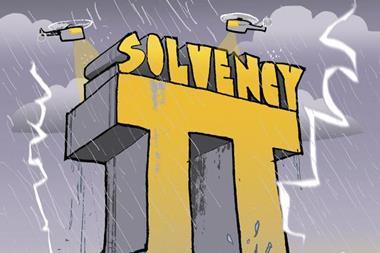When it comes to economic trouble in Europe, currency and trade credit risks leave the current Greek drama in the shade

The initial hysteria that shrouded talks between Greece and its eurozone creditors has perhaps deflected from the EU’s wider issues.
The pound sterling reached a seven-year high against the euro at the start of March, a day after the European Central Bank (ECB) initiated its strategy to curb deflation through a process of quantitative easing (QE). It was the first time since December 2007 that sterling had reached €1.40 after rising 0.4%, according to Reuters. March also saw the euro hit a 12-year low against the US dollar, almost reaching parity before it regained some ground.
Economic growth in the EU is also hindered by high unemployment rates, particularly in Southern Europe. The World Economic Forum (WEF) expects joblessness to remain at current levels until 2018. This “reflects a growing problem of structural unemployment in advanced economies” and “will likely keep wages low, maintaining deflationary pressures”, according to the WEF 2015 Global Risks report.
The likelihood of Greece exiting the EU or the eurozone (Grexit) may have been exaggerated by the media, but it remains a possibility nonetheless. Discussions with eurozone creditors and the European Commission have not been positive, but there are bigger issues in Europe, according to Lockton senior vice-president Nadine Moore.
“Although the Greek restructuring has driven many headlines, it is a much smaller issue than the economic headwinds, such as deflation, credit losses and currency risks,” she says. “Southern Europe continues to have credit losses, although the losses have slowed. There is a consensus that most distressed companies have either closed or become insolvent, but that does not mean there will not be future losses. Overall, trade has declined in the region.”
Moore says the Swiss National Bank’s surprise decision to abandon the currency cap pegging the Swiss franc to the euro destabilised money flow, and that most firms were unprepared for the strengthening of the US dollar, which has amplified currency risks for firms trading in or with the eurozone.
Praise for QE
The ECB’s decision to introduce QE was long overdue, according to a number of risk analysts. Mike Liu, quantitative analysis director at macroeconomic research firm Roubini Global Economics (RGE), says prolonged deflation would likely have dire consequences for EU firms and global corporates.
“There is justifiable concern about the risk of prolonged deflation in the eurozone given structural reasons, such as weak growth potential, high total indebtedness and excess capacity in certain industries,” says Liu.
The severity of continued deflation in the eurozone should not be underestimated, according to Lockton’s Moore, who says counterparties selling into the eurozone face increased pricing pressure and currency pressure owing to the euro’s continued depreciation.
“The effect of deflation is much more severe than recession. If continued, the financially strong countries will likely weather the storm. Those on the periphery, such as Italy, may have a harder time raising capital and keeping credit flowing,” adds Moore.
Multinational risk managers will be wise to monitor inflation rates in the next 18 months as the ECB proceeds with its plan to purchase EU government bonds and asset-backed securities for a combined €60bn each month until September 2016. The strategy will see the institute inject €1.1trn into the eurozone economy and Liu is confident that will have the desired effect for the corporates.
“ECB QE will reflate asset prices, generating positive wealth effects, partially contributing to cyclical growth improvement in the eurozone,” he says.
Whether the ECB’s QE programme successfully boosts inflation rates in the eurozone to the institute’s desired level of just above 2% remains to be seen. For the time being, currency and trade credit risks are likely to be prominent factors on the corporate risk landscape in Europe.




















No comments yet